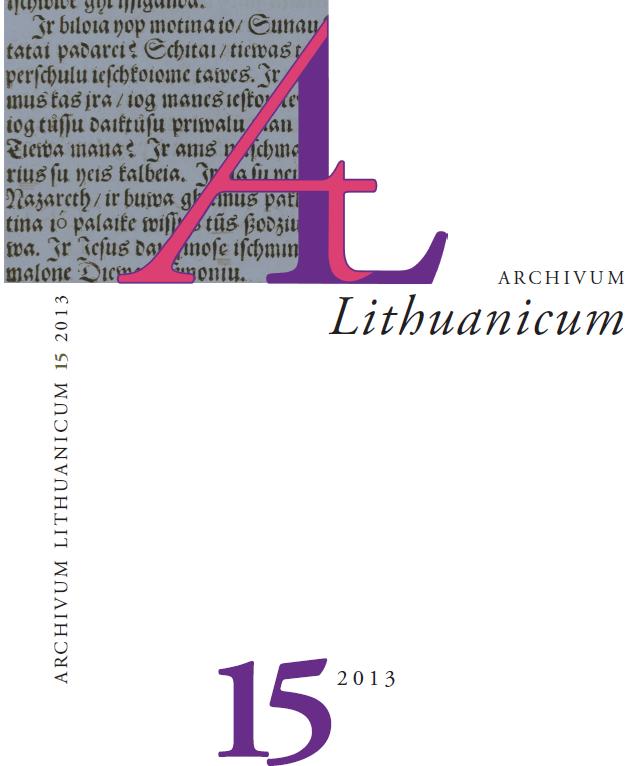„Bajoras, rašantis lietuviškai“, arba kalbos ir tautinės tapatybės ryšys ankstyvojoje Mečislovo Davainio- Silvestraičio publicistikoje
"A nobleman, who writes in Lithuanian": A link between the language
Author(s): Olga MastianicaSubject(s): Historical Linguistics, Baltic Languages, Nationalism Studies, Pre-WW I & WW I (1900 -1919)
Published by: Lietuvių Kalbos Institutas
Keywords: Lithuanian scholars; Mečislovas Davainis-Silvestraitis; Historical literature; poetry; folklor;
Summary/Abstract: For Lithuanian scholars Mečislovas Davainis-Silvestraitis (1849–1919) is known as a poet, a folklorist, and a book-carrier. We can often see such kind of an image constructed in popular media on occasions of commemorative events for Davainis-Silvestraitis. In historical literature, however, fragmentary biographical studies of Davainis-Silvestraitis were shaping a different image of a Lithuanian nobleman participating in the modern nation formation process. Davainis-Silvestraitis’ Polish publications in newspapers Litwa (“Lithuania”, 1908–1914) and Lud (“People”, 1912–1913) suggested that he did not consider language a primary condition of one’s national identity; besides, he concurrently discussed other elements thereof as well. But he began his publicist career in the newspaper Auszra (“Dawn”), and that was the environment in which the Lithuanian language functioned as a means of molding national identity. During the period of ban on Latin letters for Lithuanian Davainis-Silvestraitis became one of the rare examples of “a nobleman, who wrote in Lithuanian,” who composed schemes of integration of nobility into the modern Lithuanian nation, who structured strategies to return symbolism of the Lithuanian statehood to the modern city of Vilnius, and who actively discussed language connection to national identity.
Journal: Archivum Lithuanicum
- Issue Year: 2013
- Issue No: 15
- Page Range: 331-348
- Page Count: 18
- Language: Lithuanian

